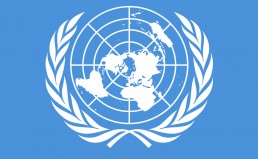At a press conference held today in Vilnius, Efraim Zuroff, director and coordinator of Nazi war crimes research worldwide at the Simon Wiesenthal Center office in Jerusalem, condemned neo-Nazi marches planned this winter in the Baltic States, one of which will take place in Kaunas tomorrow on Lithuania’s Independence Day. To arguments that banning such
News / Human Rights
Despite positive developments towards same-sex marriage legislation in France and United Kingdom, Lithuania is not going to follow the similar pattern. lrytas.lt reports that the current Minister of Justice Juozas Bernatonis have no intentions of proposing a bill on same-sex marriage. It seems that the Ministry of Justice has no interest in proposing legislation on
According to the new Chairman of the Committee on Human Rights (CHR) in the Lithuanian Parliament Leonard Talmont, the issue of legal recognition of same-sex relationships is way too controversial for the Lithuanian society. In the interview with the internet news service alfa.lt the new Chairman has expressed his skepticisms about same-sex marriage based on
Delfi.lt reports that Lithuanians perceive discrimination against people with mental disabilities, the elderly, people with physical disabilities and LGBT individuals as the most widespread in the society. These results have been indicated by a public opinion survey, booked by the Human Rights Monitoring Institute (HRMI). The results indicate that perception levels on discrimination against ethnic
The representative of the ‘Homeland Union’ Antanas Matulas, the Deputy Chairman of Committee on Health Affairs, has resubmitted a draft amendment to the Civil Code, prohibiting gender reassignment surgeries, five days after the beginning of the new parliamentary tenure. An identical draft amendment was submitted in 2011, but failed to be adopted. Therefore it could

The Lithuanian decision to apply the rules of enhanced cooperation should be confirmed by the European Commission on Wednesday. According to the Deputy Minister of Justice, this step has been taken by the Lithuanian authorities only after the introduction of public policy exception, which foresees that the procedure will not be applicable in the situations,
This week the European Parliament released a study on a potential EU roadmap for LGBT equality. Such an EU action plan would draw together new laws and policies to strengthen equality and non-discrimination for lesbian, gay, bisexual, transgender and intersex people in the EU. The research was requested by the European Parliament’s Committee on Civil Liberties,
In its concluding observations adopted at its review of Lithuania held on 9–27 of July, the United Nations Human Rights Committee makes recommendations on human rights in Lithuania. In this report the Committee expresses concern over discrimination against LGBT and Roma people, domestic violence, and alleged secret detention centres. The Committee is concerned over the

Geneva 11 July 2012. The United Nations Human Rights Committee finalized the examination of the 3rd periodic report of Lithuania, which took place on 10 and 11 July 2012 in Geneva. Today, the Human Rights Committee acknowledged the productive and open dialogue exchanged with the State delegation of Lithuania throughout the review, but also expressed
The ICJ and ILGA-Europe are extremely alarmed by the recent trend in laws prohibiting “homosexual propaganda.” Laws banning “homosexual propaganda” have been adopted in five regions in the Russian Federation, including St. Petersburg, and are currently being considered at the national level. In addition, similar proposals have been introduced in Ukraine, Moldova, Lithuania, and Hungary.
Lithuanian Gay League in a collaborative effort with the Global Initiative for Sexuality and Human Rights of Heartland Alliance has prepared and submitted a shadow report on Lithuania focusing on LGBT rights. The shadow report has been drawn up for the review of Lithuania before the UN Human Rights Committee on the implementation of the
According to the voting habits of members of the European Parliament on resolutions supporting lesbian, gay, bisexual and transgender (LGBT) people, Polish MEPs are by far the least LGBT-friendly, followed by Latvia, Lithuania and Italy. The friendliest in turn are from Denmark, Estonia and Sweden. Less than 20% of Polish and 36% of Lithuanian MEPs
